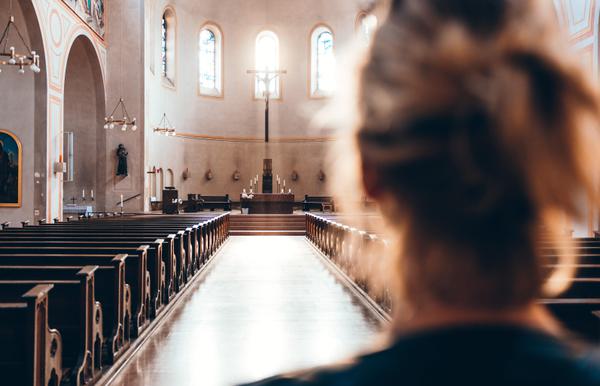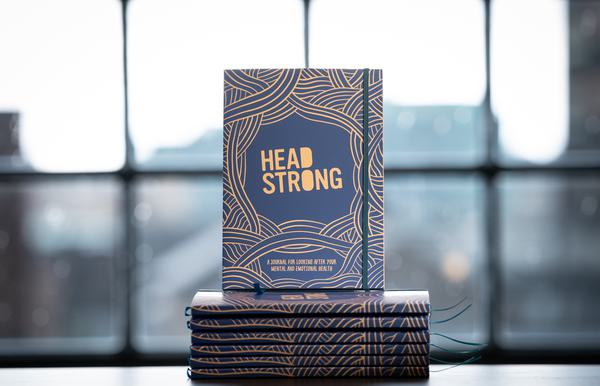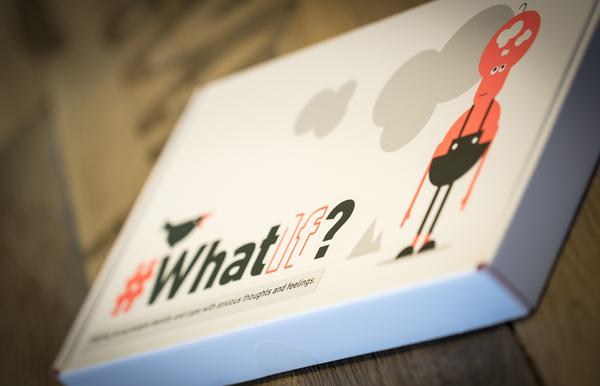Young people have faced huge challenges throughout the pandemic. As we look towards a new season, how can churches help young people to flourish in their mental wellbeing?
We're delighted to have Jen Johnson and Dan Randall from HOPE Together writing for us this week. You can find of more about HOPE Together's work here.
We all know that the pandemic has taken its toll on our wellbeing, with young people disproportionately affected by the fluctuating restrictions, ongoing uncertainty and interruptions to their education. It’s easy to feel overwhelmed by the re-building effort that lies ahead of us – but as restrictions lift, churches also have an incredible opportunity to be connecting and engaging with teenagers around the issues that really matter in their lives. The ‘building back better’ phrase has been thrown around a lot – so what would it look like to ‘build back better’ when it comes to churches helping young people flourish in all areas of their wellbeing?
According to the Association for Young People’s Health, the pandemic saw increased levels of loneliness and sleep disturbances amongst 10-24-year-olds. [1] Young people accessed health services less, while rates of recorded ‘probable mental health disorders’ continued to rise. It’s been suggested that changes in exercise patterns may become entrenched, leading to long-term impacts on both physical and mental health. While there are anecdotal accounts of some young people who’ve benefited from increased time with their caregivers, or respite from stressors such as bullying, the overall picture is one in which young people’s holistic wellbeing has been threatened. There are also stark inequalities in the ways they’ve been affected, which are likely to persist for years to come. Overall, the AYPH suggest that while there’s no simple ‘quick fix’ to these challenges, we should be starting to ‘put a range of mitigating actions in place now.’ What an opportunity for churches to step up to meet this need – amongst young people they’re already connected with, but also with those outside of our church buildings and communities.
For a number of years now, awareness has been growing in society about the importance of understanding our mental health – and the current generation of young people are perhaps more clued up about this than ever before. But wellbeing goes beyond mental health. We’re familiar with Jesus’ words about how he came to bring ‘life in all its fullness’; what might it look like to dig into helping young people really understand what that looks like in the post-COVID world? And how can we, as youth workers, equip ourselves to be facilitating conversations about this topic?
A new journey for young people
In partnership with Kingsgate Church in Peterborough, Waverley Abbey and The Way Studios, HOPE Together recently released ‘The Youth Wellbeing Journey’ – an eight-part video series, designed to help young people discover more of God’s plan for their wellbeing. Youth groups across the country have already been using it to open up meaningful conversations about with young people about how they’re really doing – across all areas of life. One of those groups is CROPS, a Christian Educational Trust in Peterborough, who ran it with a group of girls aged 14-17, from local schools. HOPE Together caught up with Amy Charlton, who works with CROPS, to find out more about her experience with the series:
‘We know that young people have really struggled during the pandemic. Because we couldn’t meet with them in big groups, we gathered together a small group of girls, who we really wanted to hone in on, invest in, and see grow,’ said Amy. ‘The videos made it really simple. The girls hadn’t really thought about their wellbeing before – they were just kind of getting on with things. But when we started to go a bit deeper, thinking about how we work, and different aspects of our wellbeing, they started to have new realisations.
Going deeper
CROPS ran The Youth Wellbeing Journey over Zoom due to restrictions, but it also works perfectly in a face-to-face small group setting. It breaks holistic wellbeing down into six sections: physical, emotional, spiritual, relational, financial, and vocational – and features four young presenters embarking on the 'journey' themselves. Biblically based, but also totally accessible for people who wouldn't call themselves Christians, it's suitable for a wide range of groups. The relaxed format means it's not only a way of digging into helpful discussions about wellbeing – it's also just a great way to build relationships and open up conversations that matter.
‘This was the first resource we’ve gone through with the group, and it was a really great way for them to get to know us, and for us to get to know them – beyond just the surface level,’ said Amy. One particular highlight for her was the week that focused on relational wellbeing. ‘That was probably the moment when they opened up the most and were able to say, “I really struggle with my friendships and my relationship with God”. That’s a really honest and vulnerable thing for them to say. It was almost a relief and a comfort for them to be able to say that, and for us to be able to be there for them and pray for them – even over Zoom. The week after, some of them came back saying, “We’ve got more questions to ask about this!” – and you know it’s working if they’ve got more questions.’
Youth workers have been using The Youth Wellbeing Journey in a number of different contexts – and now there’s a version available that’s specifically tailored for use in schools. This series of sessions respond to the needs of the ‘recovery curriculum' suggested for schools by the government after the first 2020 lockdown, with each episode designed to fit flexibly into a lesson or extra-curricular session. Who better for young people to go on a Wellbeing Journey with than their peers at school?
Right now, it’s impossible to foresee what all the long-term ripple effects of the pandemic on the wellbeing of our young people will be. But what’s certain is the need to think seriously about how we build a world where they’re able to thrive, despite the challenges we’re facing in society. The Youth Wellbeing Journey offers youth workers a ready-to-go way into discussions about wellbeing. If it might be helpful in your context, you can find out more by visiting https://wellbeingjourney.org/youth/.
[1] Hagell, A. February 2021. ‘Summarising what we know so far about the impact of COVID-19 on young people' ’ available online at https://www.youngpeopleshealth.org.uk/wp-content/uploads/2021/02/Impact-of-Covid-19-on-young-people-briefing.pdf











